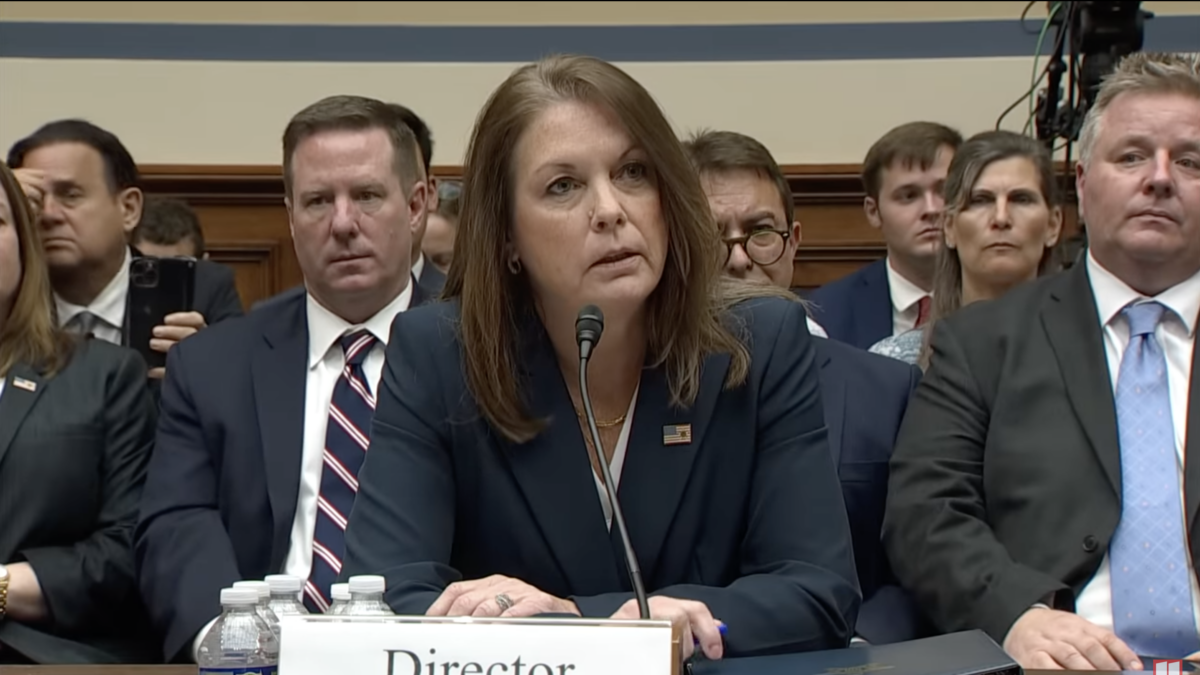
Has anyone noticed that state politics have become part chess, part Twister, part Pacman? That’s what happens when government gets a seat at the game board with citizens, consumers, and businesses.
Each of the latter three players operates as an individual or a small (compared to government) group of individuals, and each has—wait for it—a conscience. Government, on the other hand, no matter how well-operated, no matter how well-intended, is merely mechanistic (i.e., conscienceless) enforcement of the results derived from competition, coercion, corruption, and caterwauling among the other players.
And no man (or government) can serve two (or more) masters. Just ask Indiana’s Republican Gov. Mike Pence how many masters appeared when his state enacted its Religious Freedom Restoration Act (RFRA).
Let’s Everybody Pile On, Now
Right hand red went to the conservative voters in his state, who pushed for the religious liberties law and don’t want to see it watered down. Left foot green went to the consumers and workers in his state, who stood to suffer from the travel boycotts and economic backlash by Big Business. Right foot blue went to gay-rights groups who see “religious liberty” as code for “discrimination.” Left hand yellow went to for-profit businesses that want the same conscience exceptions as churches and nonprofit entities.
Indiana’s law upped the ante (a move commonly known as “check”) from the 1993 Federal RFRA it copied by making two changes: 1) it removed the requirement that challenges can only be brought when the government itself is encroaching on religious exercise and allows challenges to be brought between private parties; 2) it added corporations and other for-profit businesses to the list of entities that can assert religious objections as long the individuals who own and control said businesses are the ones asserting such objections.
Arkansas, hot on the heels of Indiana, first enacted then amended its own RFRA law under the same twisted (pun intended) intersection of competing groups that descended on Indiana.
The First Amendment Doesn’t Need Fixing
The so-called “fixes” in Indiana and Arkansas removed religious liberty from the board as an allowable legal challenge to discrimination lawsuits. RFRAs in both states are now trumped by public accommodation laws that cover lesbian, gay, bisexual and transgender individuals.
Bakers, florists, and photographers no longer have the right to express creativity according to personal conscience. They may also be required to sell products they do not carry, such as a male-male groom figure for the top of the cake. In other words, their religious liberties disappear once they leave their homes, churches, or synagogues.
Contrary to Pence’s stated intent for the fix that “every person feels welcome and respected” in Indiana, a fairly large group of conservative Christians may not. The irony is that RFRAs were already a game of roulette with the house (aka, the government) maintaining a constant edge against the players. University of Virginia law professor Douglas Laycock says it is rare for a RFRA claim to be brought to court and even more rare for the religious side to win.
One reason is that few businesses feel so strongly about religious beliefs that they are willing to turn down paying customers while opening themselves up to discrimination lawsuits. The ones who do feel strongly enough are willing to risk closure, fines, and even death threats. Those are some pretty deeply held religious beliefs.
How Much Potential for Disagreement Are We Talking?
What compelling interest does the state have for crushing religious freedom in the marketplace? Take a look at the numbers in three states with high-profile religious liberty cases.
Data collected by the University of California Los-Angeles in 2010 put the average number of gay couples in Colorado, Washington, and Oregon at about 14,000. Of those 14,000, about 2,000 were “husband/wife” (as labeled in the survey) couples, or about 15 percent. Census data from 2010 shows 58,410,000 married-couple households, so same-sex “husband/wife” couples made up about .0034 percent of all married couples in the U.S.
Even if the numbers have likely changed, with married households decreasing and gay married households increasing in the last five years, the proportion of same-sex marriage to heterosexual marriage is still infinitesimally small.
Out of the infinitesimally small number, an even smaller number wish to patronize a business whose religious beliefs preclude participation in their wedding. Out of the exceedingly rare number of RFRA cases brought to court, an even tinier number actually win.
A majority of Americans support gay marriage, an overwhelming majority of businesses prioritize economics over religion, and it is almost impossible to imagine a gay couple with access to absolutely no wedding services from receptive businesses.
Try Getting Government Off the Game Board
In its mechanistic application of fairness, government makes perfect the enemy of the good by throwing out First Amendment religious protections for all of us. Systems and institutions cannot exercise conscience; that requires individual thought and emotion.
What if we just go back to the First Amendment and really let it work? “Congress shall make no law respecting an establishment of religion, or prohibiting the free exercise thereof; or abridging the freedom of speech, or of the press; or the right of the people peaceably to assemble, and to petition the government for a redress of grievances.”
For the First Amendment to work, all involved parties have to operate with a conscience. Guess who’s out?
There was a day we needed government to enact and enforce civil-rights legislation, and I’m not suggesting we dismantle or quit enforcing any of that. But the political and social landscape has changed. Just like we can’t use our old conventional army to defeat the Islamic State, we can no longer use government legislation to mediate between religiously-minded businesses and gay marriage, to which some businesses conscientiously object and do not wish to celebrate.
What if we put the government back in its place of enforcing the peace and let individual consciences—of citizens, consumers, and business owners—work out the rest? Forget cobbled-together legislation always one step away from another chess move.
This only started because the Supreme Court watered down religious protections in Employment Division vs. Smith in 1990. Congress countered three years later by enacting the federal RFRA. Not to be outdone, the Supreme Court trumped Congress by deciding it had violated the Tenth and Fourteenth Amendments by imposing RFRA burdens on state and local government. About 20 state legislatures responded by enacting their own RFRAs, none of which raised so much as an eyebrow. Until now.
Imagine Letting People Make Their Own Decisions
Game over? It can be if we see it for what it is. If we don’t, it’s just more of the same interested parties of all stripes in all states scuttling through the Pacman maze looking for their best next chess move. It makes us all vulnerable to the prevailing legislative and judicial winds over which we as individuals have very little control.
Where we do have control is the Internet and the consumer market. Take the hypothetical removal of all government involvement to its logical extreme and picture storefronts boasting signs that say, “We Serve Straights Only.” How long do you think they would be in business? In isolated pockets of society, they may thrive, but overall, a store that refuses to serve all of its community is dead meat.
Remember, no business being vilified has refused to serve gay individuals or couples; they have declined only to celebrate gay marriage. In this brave new world, which is actually the old world envisioned by the Founding Fathers, a florist or baker or photographer will decide—without government interference—what type of wedding to participate in. Some will participate in all, some will exclude gay weddings for religious reasons, and some will plain old discriminate and cloak it in religious rhetoric.
We as consumers will decide—without anything but our consciences to guide us—which florists or bakers or photographers we will patronize. If social media can power the Arab Spring, it can disseminate real-time business practices of any establishment worldwide. You have to admit that’s a lot more efficient way to mete out social justice than a court case that drags on for years.
If businesses who choose not to participate in gay weddings have sufficient clientele to continue operating, more power to them. If they don’t, they have a decision to make: be more inclusive or go out of business. It bears mention that religious conscience is not the only kind of conscience. We are all motivated by enlightened self-interest and can respond as individuals much more flexibly than can rigid government labyrinths.
Religious liberties and gay marriage are a dance in motion. It’s likely that the political and social landscape will continue to change at an even more accelerated pace. Individual citizens, consumers, and businesses are still working out their understanding of gay marriage as the de facto law of the land. Government will always lag far behind the dynamic interplay of human experience and emotion; it’s no tool for this challenge.
Whether you’re Christian, Muslim, atheist, gay, straight, or trans, the First Amendment was written for you. Most of us think it’s a pretty brilliant forty-five words. Let it do its job.









